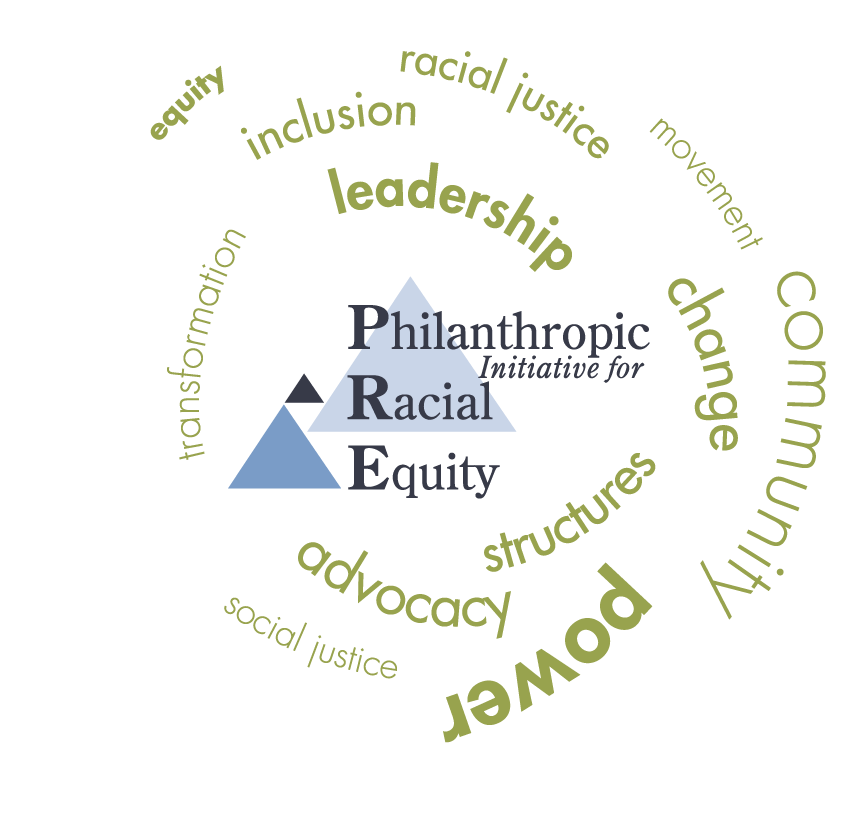Foundation Discussion Starters
We hope that many foundations committed to strengthening their work in communities of color and LGBT communities will continue, or perhaps, start this discussion within their own institutions – away from the heated debates over legislation.
While some foundations have formal policies asking grantees to share a range of racial, ethnic and sexual orientation data, obviously many do not. Many that don’t gather such data have not made an active decision not to, but have simply never even discussed it at the board or policy level.
During a recent assessment with a foundation with an explicit commitment to addressing racial disparities, PRE found that one of the board’s strongest champions for diversity and racial equity recognized that there was no place in program staff write ups that directly addressed the racial composition of prospective grantees’ staff or board. While it often came up in discussions – because this particular foundation strongly believes in the value of stakeholders having a voice and leadership – she had not realized the data was not consistently gathered.
We offer these simple questions as a potential starting point within individual foundations:
1. Does our foundation gather specific racial, ethnic, LGBT data about the staff, boards and constituencies of our grantees? Do we ever use language such as “economically disadvantaged” or “underserved” instead of naming specific racial/ethnic groups? If our communities are “majority minority” do we simply use “general population” with no ability to disaggregate?
2. Has our foundation discussed our data gathering on racial/ethnic and or LGBT status to ensure it is consistently applied across all staff? Even if it is a formal question in the grant process, have we been clear about how it is collected and recorded?
3. When we ask for data from grantees, do we focus more on which constituencies they serve rather than their leadership? If we do ask both, do we also cross-reference that data?
4. Has our current data gathering process been directly tied to policy discussions at the board level?
5. Do we seek out disaggregated data to better understand issues in our community and possible trends in our grantmaking?
6. If we already collect data on the racial/ethnic and LGBT composition of grantee staff and board, are we also recording and cross-referencing different types of funding (i.e., advocacy or service, project or general operating, single year or multiyear, etc.)
7. How is the data collected, analyzed and used? How often do we share such assessments with our board?
8. As a foundation, how do we hold ourselves accountable and examine our impact with the full range of communities that we aim to serve?
Click here to download the Foundation Discussion Starters.
There are numerous reports available to provide in-depth data about various demographics, as well as additional rationale and ways to collect and use racial/ethnic data in relationship to foundation leadership and grantmaking. While not an exhaustive list, here are a few recent resources that may further inform your discussions:
2007 Growing Opportunities: Will Funding Follow the Rise in Foundation Assets and Growth of AAPI Populations? – Growing Opportunities looks at the country’s top 20 national foundations’ grantmaking between 1990 and 2002 and finds significant funding disparities to AAPI communities in several areas. The report concludes with a call to action to the philanthropy field to reduce these gaps.
LGBTQ Grantmaking by U.S. Foundations (2006) This report marks the fifth year that Funders for Lesbian and Gay Issues has mapped funding by U.S. foundations to lesbian, gay, bisexual, transgender and queer (LGBTQ) issues and communities.
Building Communities: Autonomous LGBTQ People of Color Organizations in the U.S.(2007) is the first-ever report on autonomous lesbian, gay, bisexual, transgender and queer people of color organizations in the U.S.
Race Matters: ORGANIZATIONAL SELF-ASSESSMENT Annie E. Casey Foundation (2006) This guide helps organizations evaluate staff competencies and organizational policies and practices. It is part of a series of documents in the “Race Matters Toolkit” designed to help decision-makers, advocates, and elected officials get better results in their work by providing equitable opportunities for all. This document is part of a series. See the entire Race Matters toolkit.
Embracing Diversity; Foundation Giving Benefitting California’s Communities of Color (2008). Northern California Grantmakers, Southern California Grantmakers, San Diego Grantmakers, The Foundation Center, University of San Francisco Institute for Nonprofit Organization Management, and University of Southern California Center on Philanthropy have created this report intended to examine the current status of data collection and grantmaking in the state.

